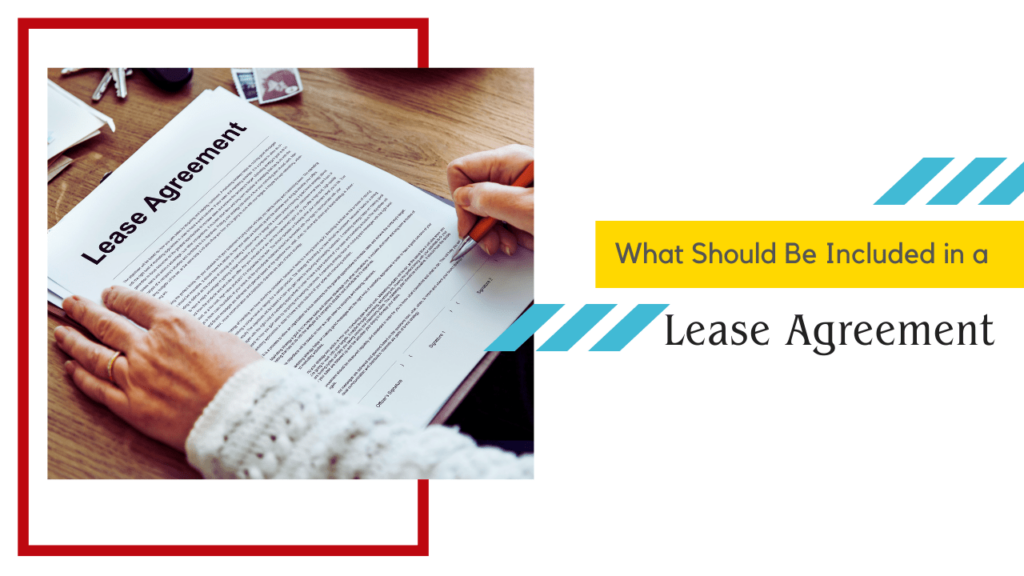What Should Be Included in a South Carolina Lease Agreement?

Your lease agreement is designed to protect your investment property, your rights as a landlord, and even your tenant’s rights. It also sets forth all the expectations you have for the tenancy and the responsibilities that fall to both you and your resident.
Lease agreements should be customized to reflect the needs of your property, however there are a few key inclusions that must be part of any legally compliant and enforceable lease agreement.
Identify All Tenants and Occupants
Start with the basics: identification.
List the names and the contact information for every adult who will occupy the property. This makes all of those residents responsible for paying the rent and taking care of the home. You’ll want to put your name and contact information as the owner of the property as well. If you’re working with a Beaufort property management company, share that contact information in the lease.
Lease Term and Renewal Instructions
The lease must include a specific start date and end date. Include instructions on what will happen at the end of the lease period. Some agreements will immediately become month-to-month leases. Others will require a renewal or a notice to vacate 30 or 60 days in advance of the lease ending.
Security Deposit Information
Your lease agreement should reflect how much of a security deposit was collected. You can also include information about what the tenant will be expected to do at the end of the lease term in order to receive a full refund of that deposit.
Rent Collection Policy
Your lease agreement must clearly state your rent collection policy. Include language that reflects how much rent is due, when it should be paid, and how it should be paid. If you have a grace period, include that. Make sure you list the consequences of missing or late rent. You’ll want to list your late fees and explain how they’re collected.
Tenant Maintenance Reporting Policies
Instructions on how to request maintenance and repairs should be included in the lease.
Be specific about what tenants are responsible for, such as air filter changes and any tenant damage. Explain how to report an emergency versus a routine repair. Make sure the lease is clear about what constitutes an emergency. You don’t want tenants calling in the middle of the night because a closet door is stuck.
Rules and Requirements
Include a section in the lease agreement that discusses what is permitted and what is prohibited. If you don’t want tenants smoking inside the property, for example, that needs to be in the rules section of the lease. You should also reference noise, quiet hours, parking, overnight guests, and criminal activity. Rules about your own conduct should have a section, too. Indicate how much notice you’ll give before entering the property for an inspection, for example.
If your rental property is in an HOA, be certain that those rules and regulations are included as an addendum.
Pet Policy
 If your tenants are moving in with pets, you’ll want to have a specific and detailed pet policy included in the lease. It should reference whether a pet fee or a pet deposit is collected, and explain the amount of pet rent that may be charged. Mention the tenant’s responsibilities in terms of cleaning up after the pet, keeping dogs on leashes, and monitoring the animal’s behavior. You should also reference penalties for violating the pet policy.
If your tenants are moving in with pets, you’ll want to have a specific and detailed pet policy included in the lease. It should reference whether a pet fee or a pet deposit is collected, and explain the amount of pet rent that may be charged. Mention the tenant’s responsibilities in terms of cleaning up after the pet, keeping dogs on leashes, and monitoring the animal’s behavior. You should also reference penalties for violating the pet policy.
These are just a few of the important terms you need in your lease agreement. If you’d like help getting a lease into place, don’t just download any template you find on the internet. You need a lease that’s legally enforceable in South Carolina. We can help. Contact us at Beaufort Rentals, and we can assist with all of your Beaufort property management needs.
